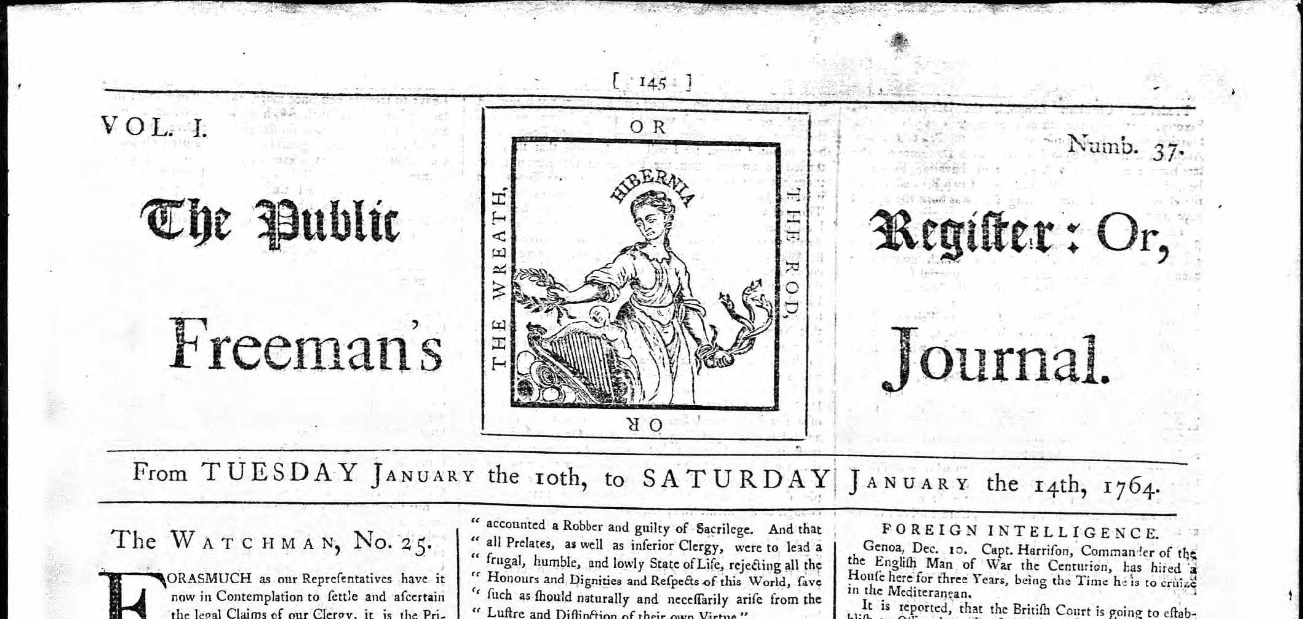Historic Irish Newspapers
Newspapers
Newspapers have long been one of the most enjoyable but also one of the most difficult of genealogical sources. Faced with so much of the everyday particularity of the past, it can be virtually impossible to confine oneself to biographical data; again and again research is sidetracked by curiosity. In addition to this, the endemic imprecision of family information means that it is almost always necessary to search a wide range of dates. A sustained search for genealogical information in original copies of newspapers is extremely time-consuming. However the rapid increase in the number of historic Irish newspapers searchable online has now shifted the balance between research time and results in dramatic fashion. The ability to quickly trawl entire decades of publications has transformed them into one of the most genealogically useful sources.
The destruction of so many Irish records in 1922 had already given a disproportionate importance to Irish newspapers. When they yield information it can be extremely rewarding. Events are reported virtually as they happen, within a few weeks at most, and the reports have an authority and vividness that is hard to match, even making allowances for journalistic errors and poor search interfaces. The incidental detail in a newspaper report can bring the past to life in a way that is truly unique.
From the mid-eighteenth century, stamp duty, a form of tax requiring public documents to have an official stamp, was levied on newspapers by the British government. In 1822 the Stamp Office agreed to pass copies of all newspapers to the British Museum, now the British Library. From 1822, therefore, almost all UK newspapers should be part of the BL's newspaper collection. In practice, Irish publications appear to have been passed to the Library only from around 1828 and the collection as a whole did not become fully comprehensive until the 1840s. From 1869 British and Irish newspapers have been required by legal deposit law to send one copy of each issue to the British Library.
What this means is that from the second quarter of the nineteenth century at least some copies of almost all Irish newspapers, provincial and national, should be held by the British Library. As the Library has committed itself to making all of its historic collection available online, the significance of this is clear. An account of access routes is given in the section dealing with post-1822 publications below.
Although pre-1828 publications are rarer, the lack of alternatives makes them extremely valuable.
